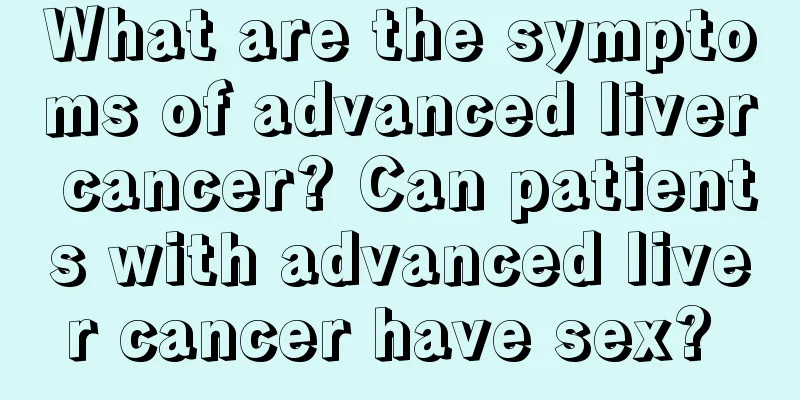There is plaque in the carotid artery. Here are 3 treatment methods.

|
With the continuous improvement of living standards, people pay more and more attention to their physical condition, so health checks have become an indispensable part of people's daily life. Many people in life find plaques in their carotid arteries during examinations, which makes people very worried about whether it will affect their health. However, since these plaques do not itch or hurt, people are even more confused about whether they need treatment. In fact, receiving treatment is necessary because the carotid artery plays a key role in the human body and must be taken seriously. Patients can choose the appropriate treatment based on their own situation through three methods: non-drug treatment, active control of various cardiovascular risk factors, and statin treatment. 1. Does carotid artery plaque require treatment? The answer is yes. The carotid artery is equivalent to a window into our systemic arterial system and can reflect the health status of our systemic arterial system to a certain extent. If atherosclerotic plaques are found in the carotid artery, blood vessels in other parts of the body, such as the coronary arteries and cerebral arteries, may also have plaques. Atherosclerotic plaques are an important pathophysiological basis for cardiovascular and cerebrovascular diseases. Therefore, once carotid artery plaques are found, active treatment should be received. two. How to treat it? The treatment measures for carotid atherosclerotic plaques mainly include the following aspects: 1. Non-drug treatment: The treatment of carotid plaque not only refers to drug treatment, but also includes non-drug treatment, and the latter is more important. Once carotid artery plaques are found, regardless of the size of the plaques and whether they cause vascular stenosis, lifestyle interventions should be immediately implemented, i.e. controlling food intake, improving diet structure, increasing exercise, reducing weight, quitting smoking and limiting alcohol consumption. These measures can help lower blood cholesterol levels and prevent further growth or increase of plaques. 2. Actively control various cardiovascular risk factors: In addition to quitting smoking, limiting alcohol, and controlling weight as mentioned above, if you suffer from hypertension or diabetes, you must also actively and reasonably control your blood pressure and blood sugar. Both hypertension and diabetes are important factors that lead to the formation of atherosclerotic plaques. Actively and reasonably controlling blood pressure and blood sugar under the guidance of a doctor can help slow the continued growth of atherosclerotic plaques. 3. Regarding statin therapy: Whether statin therapy is needed should be determined based on the patient's specific circumstances. If carotid artery plaques cause significant stenosis of the carotid artery (stenosis ≥ 50%), statin treatment should generally be given to control low-density lipoprotein cholesterol (LDL-C) below 2.0 mmol/L (preferably 1.8 mmol/L). If the carotid artery plaque does not cause significant stenosis (stenosis <50%), the patient needs to be evaluated for cardiovascular disease or other cardiovascular risk factors. The following situations may occur: 1) Patients with confirmed coronary heart disease or ischemic stroke should receive statin treatment immediately regardless of whether there is obvious stenosis of the carotid artery, and control LDL-C below 2.0mmol/L (preferably 1.8mmol/L); 2) Patients without coronary heart disease and ischemic stroke but with diabetes and hypertension should also take statins to control LDL-C below 2.0mmol/L (preferably 1.8mmol/L); 3) Patients with diabetes and LDL-C>2.6mmol/L need statin treatment; 4) Patients with chronic kidney disease (stage III or IV) and LDL-C>2.6mmol/L need statin treatment; 5) Patients with hypertension or other risk factors and LDL-C>3.4mmol/L are recommended to use statin treatment to reduce LDL-C to <3.4mmol/L. The above is a simple judgment method. In clinical practice, a comprehensive analysis of the patient's other conditions should be conducted to make a comprehensive judgment. By improving lifestyle and taking statins, the growth of plaques can be effectively slowed down, and the plaques in some patients may even shrink or even disappear. 4. Is it necessary to use aspirin? This also needs to be determined based on the patient's specific circumstances. Patients with significant carotid artery stenosis (≥50%) should generally take aspirin (75-150 mg daily). If the patient has only one or more plaques but has not caused luminal stenosis, or if there is stenosis but the degree of stenosis is <50%, it is necessary to determine whether aspirin is needed for primary prevention based on the patient's other cardiovascular risk factors. Aspirin (75-150 mg daily) is recommended for such patients if they have ≥ 3 of the following risk factors: 1) men ≥ 50 years old or women after menopause; 2) initially controlled hypertension (blood pressure of hypertensive patients after treatment < 150/90 mmHg); 3) diabetes; 4) hypercholesterolemia; 5) obesity (body mass index ≥ 28); 6) family history of premature cardiovascular disease (one or both parents are < 55 years old for males and < 65 years old for females); 7) smoking. In addition, patients with hypertension and chronic kidney disease are also eligible for aspirin. If you find carotid artery plaque, you don’t need to be too nervous, but you must actively seek treatment under the guidance of a doctor. For patients whose carotid arteries are severely narrowed or even occluded due to plaque, special treatments for local lesions may be required, such as carotid artery stenting or carotid endarterectomy. |
<<: What is the correct way to use nose patches?
>>: What are the effects of Peikun
Recommend
Are bamboo fiber towels good?
Bamboo fiber towels are mainly made of bamboo fib...
What's the matter with the bubbles at the corners of the mouth? What's the reason?
In life, many friends feel that bubbles appear at...
Why do I get a headache if I use my brain too much? How can I relieve a headache if I use my brain too much?
Recently, with the increasing pressure of work an...
What are the dangers of endometrial cancer?
Women all over the world are paying attention to ...
Is the ovulation period before or after menstruation?
In our daily lives, we often see many advertiseme...
How to cure nasal congestion_Methods to relieve nasal congestion
Nasal congestion is a complication of many diseas...
How to read the level of thyroid cancer list
Thyroid cancer list generally refers to the patho...
Contraindications of video-assisted thoracoscopic surgery for esophageal cancer
With the rapid development of medical technology,...
What to do if the cutting board is moldy?
In daily life, cutting board is an indispensable ...
What to do if you have a bloated stomach after eating too much at night
As the saying goes, eat well in the morning, eat ...
Heart rate increases and I feel anxious
Many people think that a faster heartbeat is actu...
Patients with laryngeal cancer should pay more attention to its common symptoms
In recent years, the incidence of laryngeal cance...
How to effectively treat otitis media and eardrum perforation
Eardrum perforation is mostly caused by trauma, b...
Peitu Shengjin Chuai Decoction for treating middle and late stage lung cancer
Traditional Chinese medicine emphasizes the treat...
What to do with ascites in the late stage of liver cancer? How to deal with it?
Liver cancer is a malignant tumor that is difficu...









